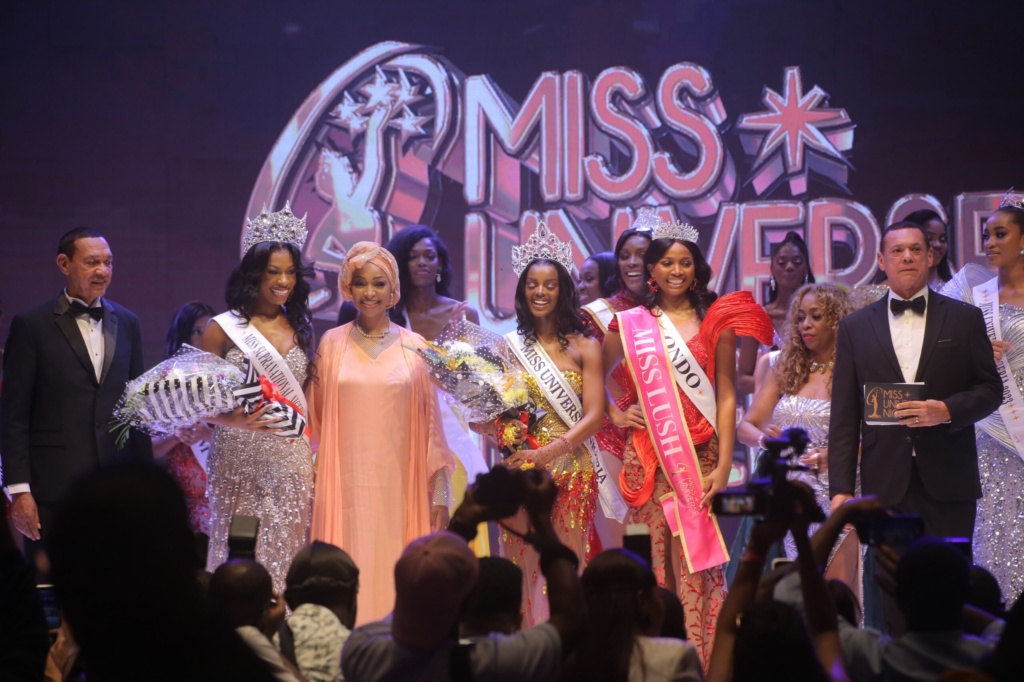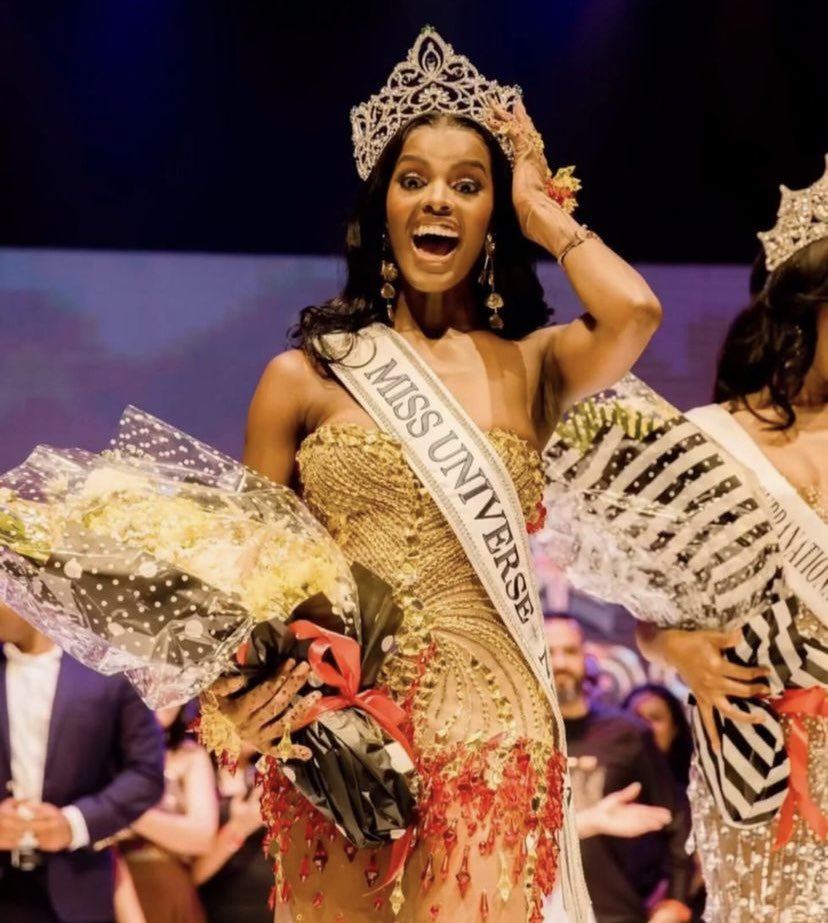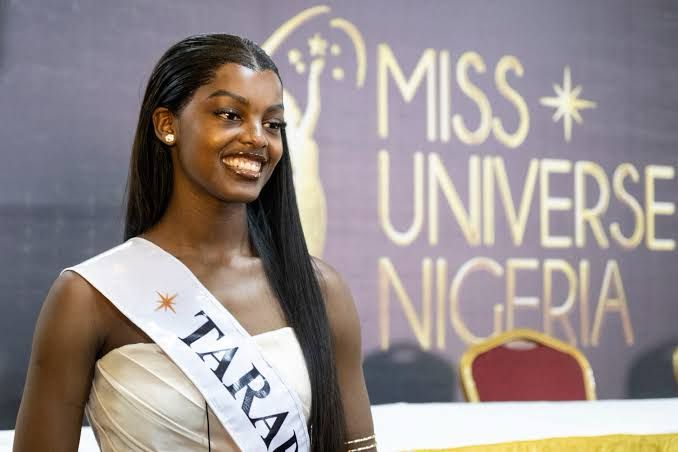
By Olakunle Agboola – The relationship between South Africa and Nigeria, two of Africa’s most powerful and influential nations, has long been complex, characterized by a mixture of cooperation and rivalry. As leading voices on the continent, both countries have significantly shaped Africa’s political, economic, and cultural landscapes. However, despite their shared ambitions, their relationship has often been strained by underlying tensions.
A recent incident involving Chidinma Adetshina, the newly crowned Miss Universe Nigeria, has brought these tensions to the forefront, highlighting the deep-seated disunity between South Africa and Nigeria.
Chidinma Adetshina: A Rising Star
Chidinma Adetshina, a young and charismatic figure, has rapidly become a prominent symbol of national pride in Nigeria and across Africa. Her crowning as Miss Universe Nigeria was celebrated by millions as a testament to the country’s rich culture and beauty. Her victory was expected to be a straightforward celebration but instead ignited a contentious debate that has fueled tensions between South Africa and Nigeria.
The Roots of South Africa-Nigeria Rivalry
The rivalry between South Africa and Nigeria is deeply rooted in history, economic competition, and political ambitions. During the apartheid era, Nigeria was a staunch critic of South Africa’s racist policies and played a significant role in supporting the anti-apartheid movement, fostering a sense of solidarity between the two nations. However, post-apartheid, as South Africa emerged as a major economic power, competition began to overshadow this shared history.
This economic rivalry has often spilled over into other areas, including politics, sports, and culture, creating a relationship that is at times friendly, but frequently contentious.
The Controversy Over Chidinma Adetshina
The controversy surrounding Chidinma Adetshina exemplifies the broader conflict between Nigeria and South Africa. Adetshina, who spent 23 years in South Africa, faced criticism over her Nigerian origins when she initially entered the Miss Universe South Africa competition. She later withdrew and returned to Nigeria, where she was crowned Miss Universe Nigeria.
Social media quickly became a battleground, with South Africans claiming Adetshina as one of their own, arguing that her success was partly due to the opportunities she had in South Africa. Nigerians, on the other hand, saw these claims as an attempt to appropriate Nigerian achievements. The debate soon escalated into a broader discussion about national identity and the complicated relationship between the two countries.
Media and Public Reactions
The media in both countries amplified the discord. Nigerian outlets emphasized Adetshina’s Nigerian heritage, framing her success as a victory for Nigeria. Conversely, South African media highlighted her ties to South Africa, presenting her as a symbol of the country’s influence in African culture.
The situation escalated when Nigeria’s Minister of Art and Culture, Hannatu Musawa, was photographed embracing Adetshina at the Miss Universe Nigeria grand finale. Some South Africans were incensed by the image, with rumors swirling that Adetshina’s mother had been assisted by the Nigerian Embassy to leave South Africa for Nigeria. ActionSA, a South African political party, even wrote to the Department of Home Affairs seeking an explanation.
Public figures from both countries weighed in, with some calling for unity and others deepening the divide by promoting nationalist sentiments.
The Broader Implications
The Chidinma Adetshina controversy is more than just a dispute over a beauty pageant title; it reflects the deeper issues that continue to strain South Africa-Nigeria relations. The rivalry between these two nations, driven by economic competition, political ambition, and cultural pride, has often hindered their ability to collaborate on issues of continental importance.
Recent incidents, such as xenophobic attacks in South Africa targeting Nigerian immigrants and economic disputes, have further strained relations. The ongoing social media battles, marked by hashtags like #BoatforBoat and #CrownforCrown, highlight the hostility that persists, particularly among the youth of both nations.
A Way Forward
Chidinma Adetshina’s crowning as Miss Universe Nigeria should have been a moment of celebration for all of Africa. Instead, it has become a symbol of the disunity that continues to plague South Africa-Nigeria relations. As this controversy unfolds, it is crucial for both nations to reflect on the broader implications of their rivalry and seek ways to bridge the divide.
In an increasingly interconnected world, where Africa faces global challenges such as economic instability, climate change, and political unrest, unity between the continent’s most powerful nations is more important than ever. The Adetshina controversy underscores the need for South Africa and Nigeria to move beyond petty rivalries and work together for the greater good of the continent.
Ultimately, Chidinma Adetshina’s success should be celebrated as a testament to the potential of African talent, transcending national borders. It is a call to focus on what unites Africa rather than what divides it, as only through unity can the continent achieve true progress and prosperity.
Kindly follow us on twitter:@AfricanVoice2










